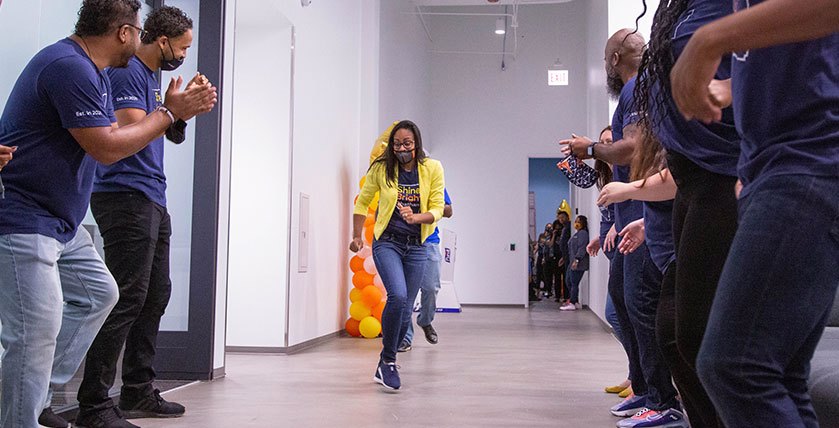How to boost a neighbourhood, simply but radically

Entirely by coincidence, I heard about a “radically simple way to boost a [poor] neighbourhood” in Chicago shortly after the city elected as its mayor a man who believes that surging crime can and should be tackled by economic and community development, more social workers and mental health professionals.
On April 4, Brandon Johnson won the Chicago mayoral election because, rather than despite his bold plans for regeneration and fighting crime.
On April 5, Steven Dubner’s Freakonomics covered the remarkable developments that have occurred on the south side of Chicago in the past two years simply because one company decided to live its diversity, equity, inclusion (DEI) rhetoric. The south side is one of the poorest, most crime-ridden parts of the city.
After Roger Hochschild, CEO of American credit card company Discover heard professor and race historian Ibram X Kendi suggest that it was not enough to frown upon racism, it was important to be “anti-racist”, he decided to act to make a positive difference.
Discover, which describes itself as the only major bank with 100% US-based customer service, was looking to open its first new call centre in over 20 years. And it decided it needed to change its approach, its workforce and its ambitions.
Rather than follow in the footsteps of other companies that usually choose leafy, pleasant places – suburbia, middle class territory – to add in even social capital, Discover decided on the south side of Chicago. It was a complete reversal of what others were doing. Amazon, for instance, had recently set up its corporate headquarters in Virginia. And the south side of Chicago was a place with few jobs and a poor, mainly black community, whose men had high rates of criminal offending. Life wasn’t good on the south side but Discover planned to change that. Not by offering debt relief, but by pledging a thousand decent jobs by 2024, free workday lunches at local eateries for its staff, a community centre and a workplace that boasted a counsellor and a nurse practitioner.
In the crummy neighbourhood of Chatham, Discover set up this centre in the warehouse vacated by Target in 2018. It recruited one of its very few senior black managers to lead the whole thing. Juatise Gathings, as it turned out, had lived part of her girlhood on the south side. So she had credibility with the locals as well as a lot of local connections.
Two years on, Discover’s new call centre is delivering for the company – excellent service and lower rates of attrition than any other centre. And it’s delivering for the community. Locals are happy with the good jobs, financial stability, the short commute, the chance to look after their children rather than be travelling long hours to-and-from work, Discover’s contracts with small local businesses, a chance for local nonprofits to use the community centre for free and a space to display local art.
It’s a model of community investment that’s worth replicating, and not just in America.

